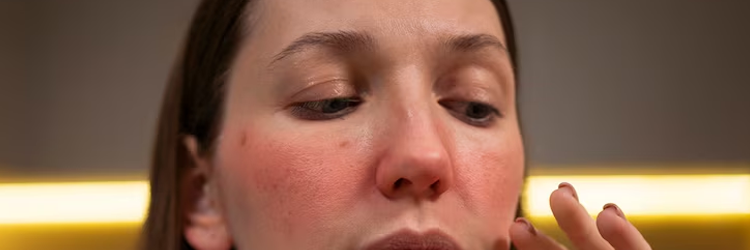Rosacea, a chronic and inflammatory skin condition commonly known as “rose disease” in medical terminology, primarily affects the facial area. It typically presents with redness, prominent blood vessels, acne-like bumps, and a sensation of heat, particularly on the cheeks, nose, forehead, and chin. Rosacea progresses with flare-ups and remission periods, and if left untreated, it can lead to permanent skin damage. The condition usually begins after the age of 30 and is more common in women, although it can be more severe in men.
The exact cause of rosacea is not fully understood, but it is believed to be influenced by a combination of genetic predisposition, immune system sensitivity, gastrointestinal issues, and environmental factors. Overexposure to the sun, stress, spicy foods, alcohol, hot beverages, sudden temperature changes, and certain skincare products are among the triggers for rosacea. In its early stages, the condition may only present as superficial redness, but over time, it can cause permanent blood vessel dilation, skin thickening, and especially deformities around the nose. This can lead to both physical discomfort and aesthetic concerns.
Rosacea is not contagious; however, due to its progressive nature, early diagnosis and proper treatment are crucial. When symptoms such as increased skin sensitivity, intolerance to sunlight, and sudden facial redness are noticed, it is important to consult a dermatologist. Treatment varies based on the severity of the condition and may include topical creams, oral medications, laser treatments, and medical skincare procedures. Additionally, regular moisturizing and sun protection with suitable skincare products play a vital role in enhancing the effectiveness of the treatment.
Rosacea is a manageable condition. With a personalized treatment plan, avoiding trigger factors, and maintaining a proper skincare routine, the disease can be effectively managed in the long term. Although it may cause aesthetic concerns, with the right approach, skin health can be preserved, and flare-ups minimized.
This content has been prepared in line with the recommendations of Associate Professor Dr. Tuğba Falay Gür.










